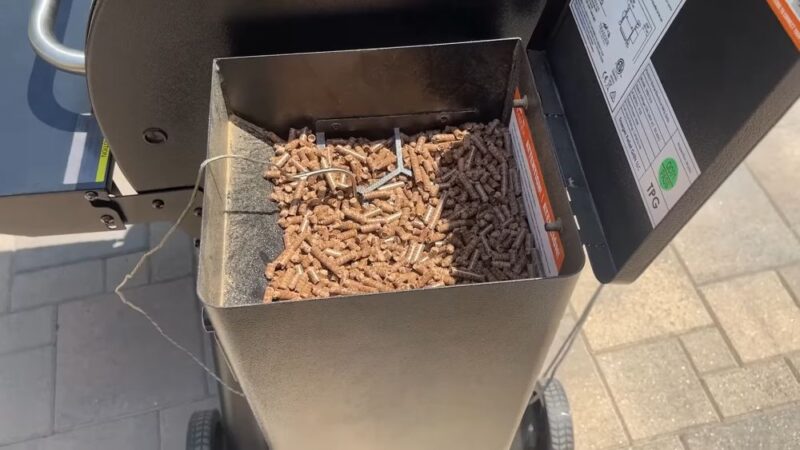Pellet grills have been the talk of many weekend barbecues and family gatherings. They promise the ease of an electric stove and the smoky flavor of a wood-fired oven.
That can be especially convenient if you are planning to prepare food for a bigger group of people. But, there’s an important question that many potential users have: How much do these grills impact the electricity bill?
The Basics
Understanding the mechanics of a pellet device is the first step in decoding its electricity usage. It represents a perfect combination of old-fashioned and modern features.
How They Work
Pellet grills rely on wood pellets for heat and an electric system for control and regulation. The digital controller and fans are the main electronic components, with the controller ensuring temperature accuracy and the fans aiding in even heat distribution.
Electricity Consumption
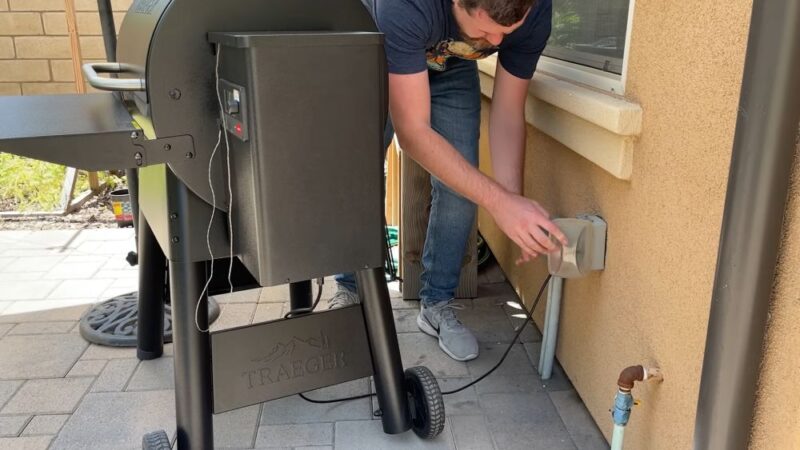
When we get down to numbers, they are highly efficient. On average, they use about 60 watts per hour during cooking, which is similar to a standard light bulb. However, there are phases to its consumption:
- Start-up Phase: During the initial moments when you fire it up,, there’s a spike in electricity usage. This is when the igniter rod heats up to light the pellets.
- Operational Phase: Once the device reaches the desired temperature, the consumption stabilizes, primarily powering the controller and fans.
The Running Costs
So, how does this usage reflect on your electricity bill?
- Daily Usage: If you’re using it for about 4 hours, you’d consume approximately 240 watts. This is akin to running four LED bulbs for the same duration.
- Monthly Implication: Using it for 8 days in a month (2 days a week) translates to about 1.92kWh. Depending on the electricity rates in your area, you can calculate the monthly cost.
Comparative Analysis
To put things in perspective, let’s see how pellet stack up against other household items:
- Pellet Grill (4 hours): 240 watts
- Desktop Computer (4 hours): ~280 watts
- Washing Machine (1 hour): ~500 watts
- Oven (1 hour at 350°F): ~2000 watts
Clearly, while the pellet grill isn’t the least electricity-consuming appliance, it’s far from the most demanding.
Options for the Energy-Conscious Grill Master
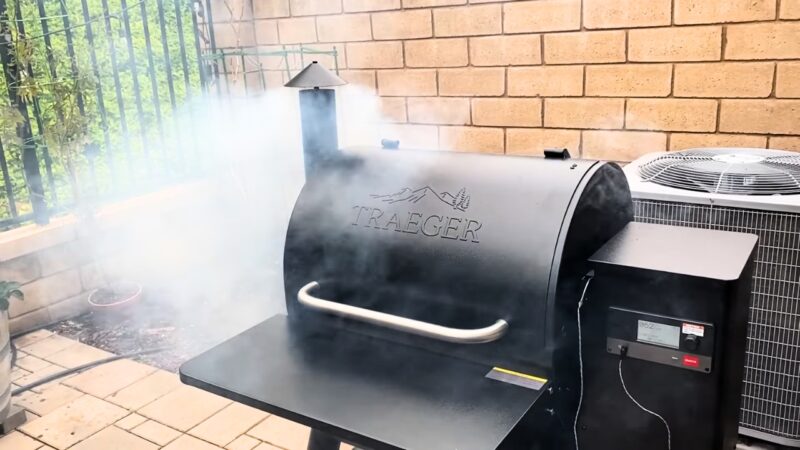
If you’re looking to minimize your pellet grill’s energy consumption, there are a few strategies you can adopt.
- Optimal Maintenance: Regular cleaning and ensuring the parts are in top shape can enhance efficiency. Blocked vents or a dirty fire pot can force the device to work harder.
- Energy-efficient Models: Some pellet models are designed with energy efficiency in mind. Research and reviews can help you identify these.
Alternative Power Sources
In a world moving towards sustainability, preparing your favorite food can also be done in the same manner.
- Solar Power: Portable solar panels can be used to power your grill, making it completely green.
- Battery Packs: For those who like to take their grills on the road, there are powerful battery packs available that can run a pellet grill for several hours.
Hidden Costs & Benefits
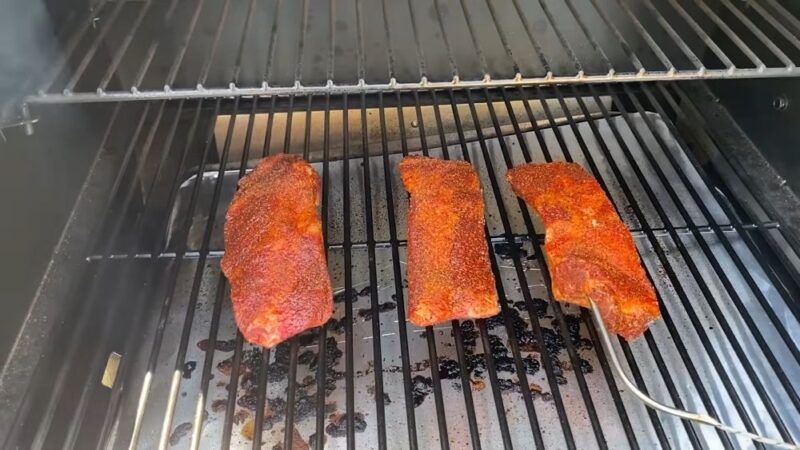
When considering the electricity costs of a pellet grill, there’s more to the picture than just the wattage consumption. Learning more about this option will help you make the right choice.
- Durability and Longevity: A well-maintained pellet grill can last for years, potentially offsetting its operational costs. Investing in quality pellets and regular maintenance can enhance its lifespan.
- Versatility: Beyond grilling, many pellet grills offer a range of cooking options like smoking, roasting, and baking. This multipurpose nature can sometimes replace the need for other appliances, saving on both energy and costs.
Environmental Considerations
With increasing global awareness about sustainability, it’s essential to understand the environmental impact of our choices.
- Eco-Friendly Fuel: Wood pellets are a renewable resource, often made from sawmill residues or forestry byproducts. This makes them a more sustainable choice compared to charcoal or gas.
- Carbon Footprint: While pellet grills use electricity, their carbon footprint can be relatively lower, especially when paired with renewable energy sources or when considering the full lifecycle of the fuel (like propane or charcoal).
Tips for Efficient Pellet Grill Usage
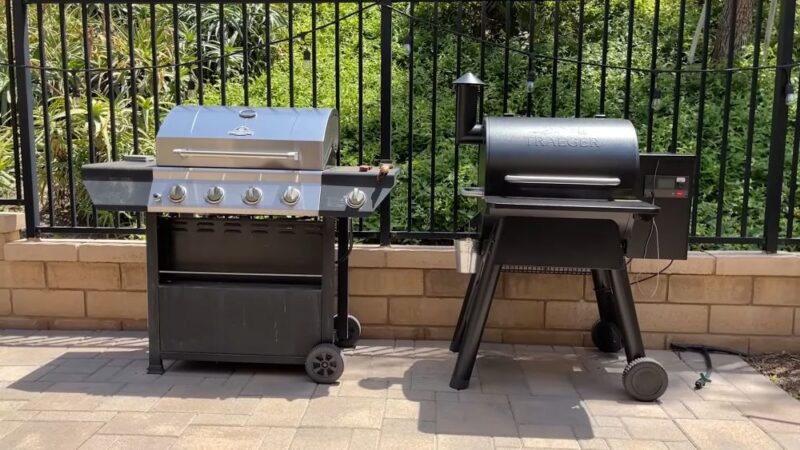
Maximizing the efficiency of your pellet grill can lead to both energy and cost savings. Here are some pointers to get the most out of your grill without overburdening your utility bill.
- Pre-Heat Properly: While it’s essential to preheat the grill for optimal results, avoid leaving it on for too long before placing your food. This ensures you’re not wasting electricity during idle times.
- Monitor Ambient Temperature: Pellet grills work harder in colder climates to maintain desired temperatures. Grilling in a sheltered location or using thermal covers can reduce this extra effort.
- Bulk Cooking: Making the most of your grill every time you fire it up can lead to greater efficiency in the long run.
- Meal Prep: Consider grilling items for the week in one go. Not only does this save on electricity, but it also reduces the wear and tear on your grill from frequent startups.
- Social Gatherings: If hosting a BBQ party, having a menu planned and the items ready ensures the grill is continually at work during its operational hours, maximizing its utility.
Comparison With Other Types
While energy consumption and source are very important factors, some other details can also have a significant impact on the preparation process, taste, duration, maintenance, and more. Therefore, you should learn more about different solutions and choose the best one for your needs.
Gas Grills
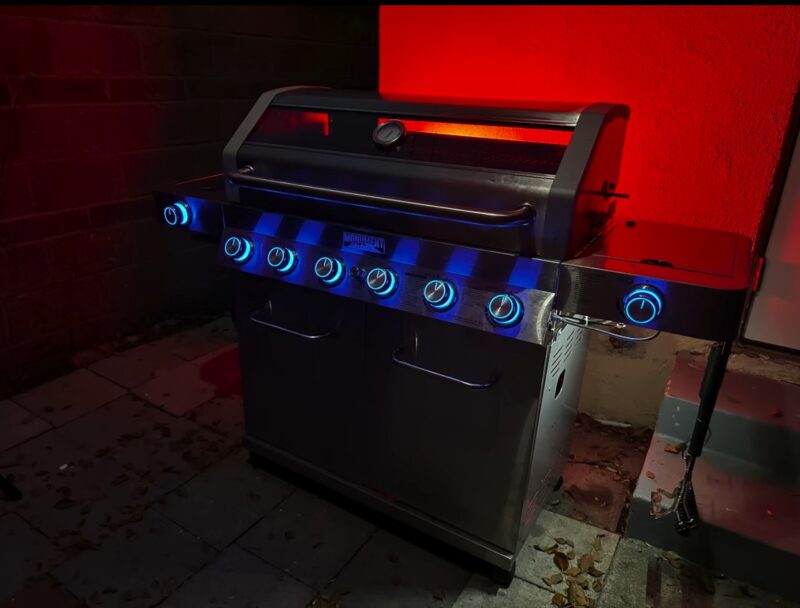
Gas models are known for their rapid start-up. They can reach the right temperature in no time, potentially conserving energy. Flame control is straightforward, which minimizes chances of energy wastage.
But there’s a flip side: gas is a fossil fuel. Its consumption releases greenhouse gasses, and the volatile costs associated with gas can influence the long-term operational expenses of the grill.
Charcoal
This is traditionally the most popular option, but also the main issue due to harmful impact on the environment. According to the opinion of many people, the food you prepare using this model is perfect, but that is not worth it when you consider the released toxins.
In that matter, this is surely an option to always avoid.
Electric
This can be a quite convenient solution, especially for those living in urban areas. While some people may say that the aroma can never be the same when there is no fire, you can always resolve that with the right spices.
When it comes to the impact on the environment, that depends on the source used for generating the power.
FAQs
How does the size of a pellet grill affect its electricity consumption?
The size of a pellet grill can influence its energy consumption. Larger grills might require more energy initially to reach the desired temperature. However, once at the optimal temperature, the difference in energy use between a small and large grill narrows. It’s always best to choose a size that aligns with your regular grilling needs to ensure energy efficiency.
Are there any off-grid solutions for powering my pellet grill without compromising on its efficiency?
Yes, there are off-grid solutions available. Portable generators or high-capacity battery systems can power your pellet grill. Solar-powered battery systems are also emerging as an eco-friendly choice, providing a sustainable way to enjoy your grilling sessions without being tethered to the grid.
How does altitude impact the efficiency of a pellet grill?
At higher altitudes, the air is thinner, which can impact the combustion efficiency of the wood pellets. The grill might consume more pellets to achieve the same temperature as it would at a lower altitude. Some modern pellet grills come with altitude settings to adjust and optimize performance based on your location.
Can I use third-party wood pellets, and will they affect the energy efficiency of the grill?
While you can use third-party wood pellets, it’s essential to ensure they are of high quality. Low-quality pellets might not burn as efficiently, leading to increased consumption and potentially affecting the overall energy efficiency of your grill.
Does opening the lid frequently affect the energy efficiency of my pellet grill?
Yes, opening the lid frequently can cause temperature fluctuations. Each time the lid is opened, heat escapes, and the grill will need to use more energy to return to the set temperature. It’s advisable to minimize lid openings to ensure consistent temperatures and optimal energy usage.
Last Words
While pellet grills have their unique energy characteristics, they stand out for their balance of eco-friendly fuel and versatility. When we compare them with other grills, they offer a great mix of flavor and energy efficiency.
On the other hand, the key factor is always related to individual priorities and preferences.
